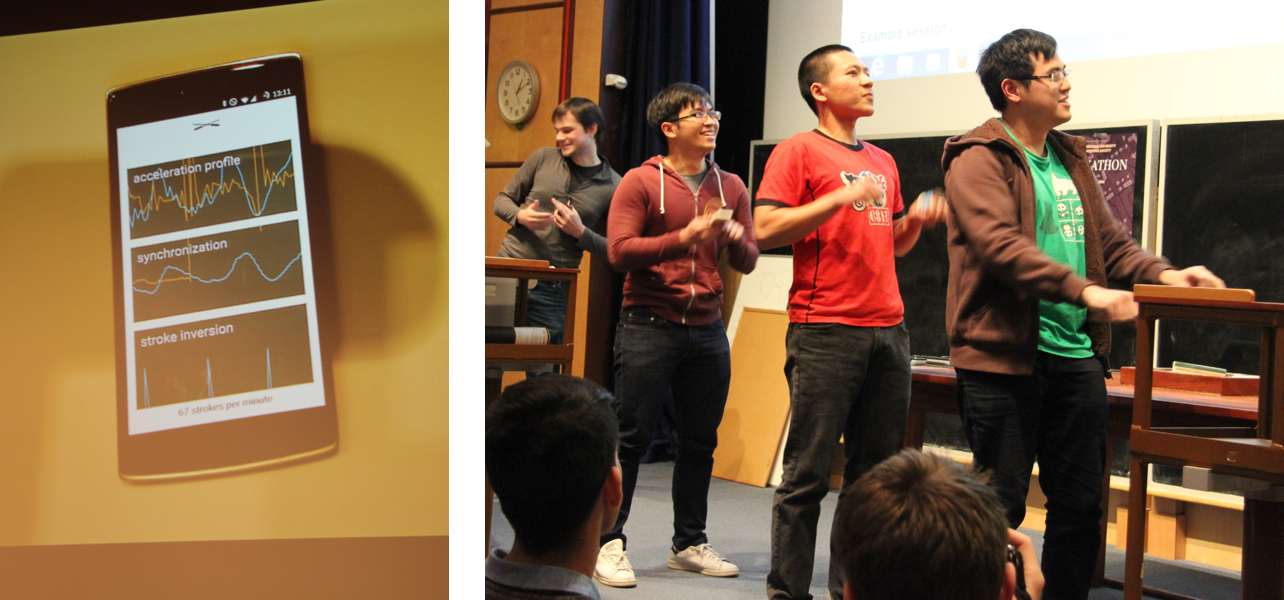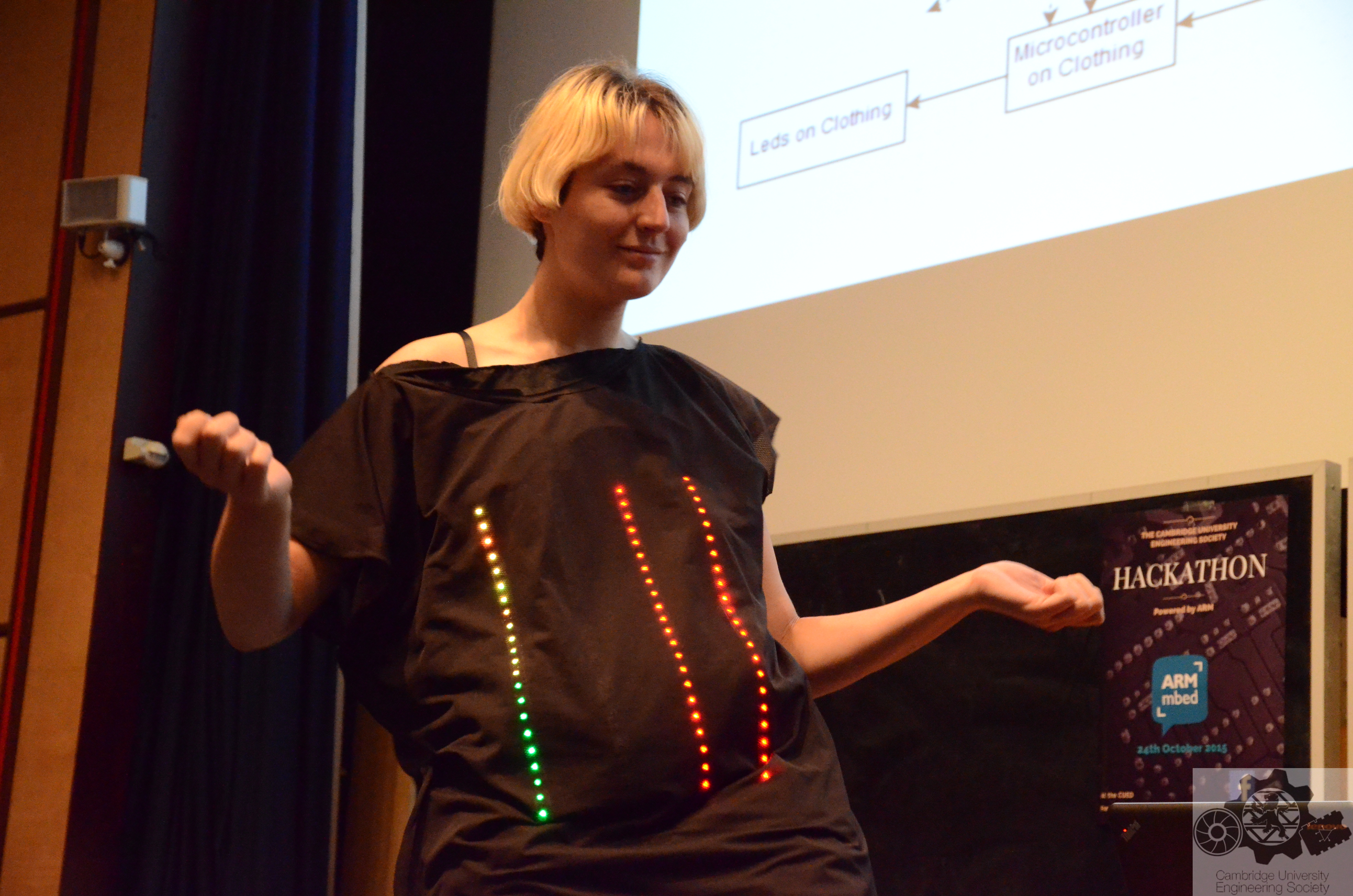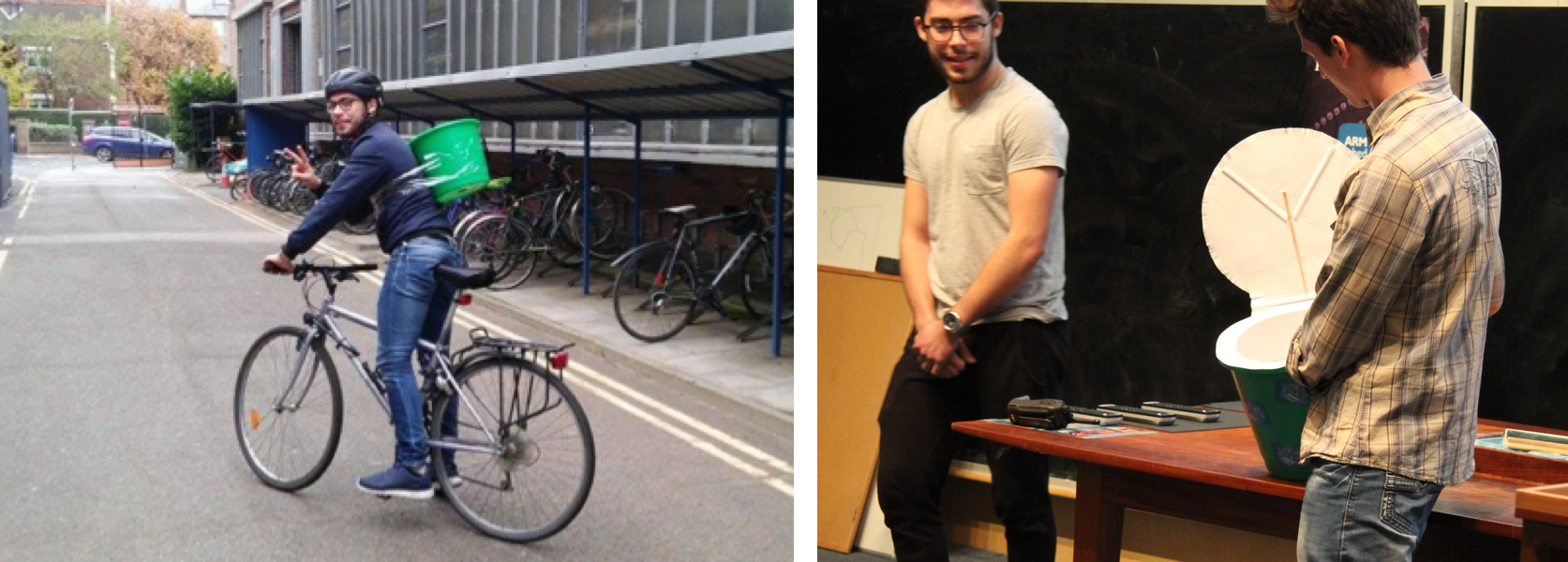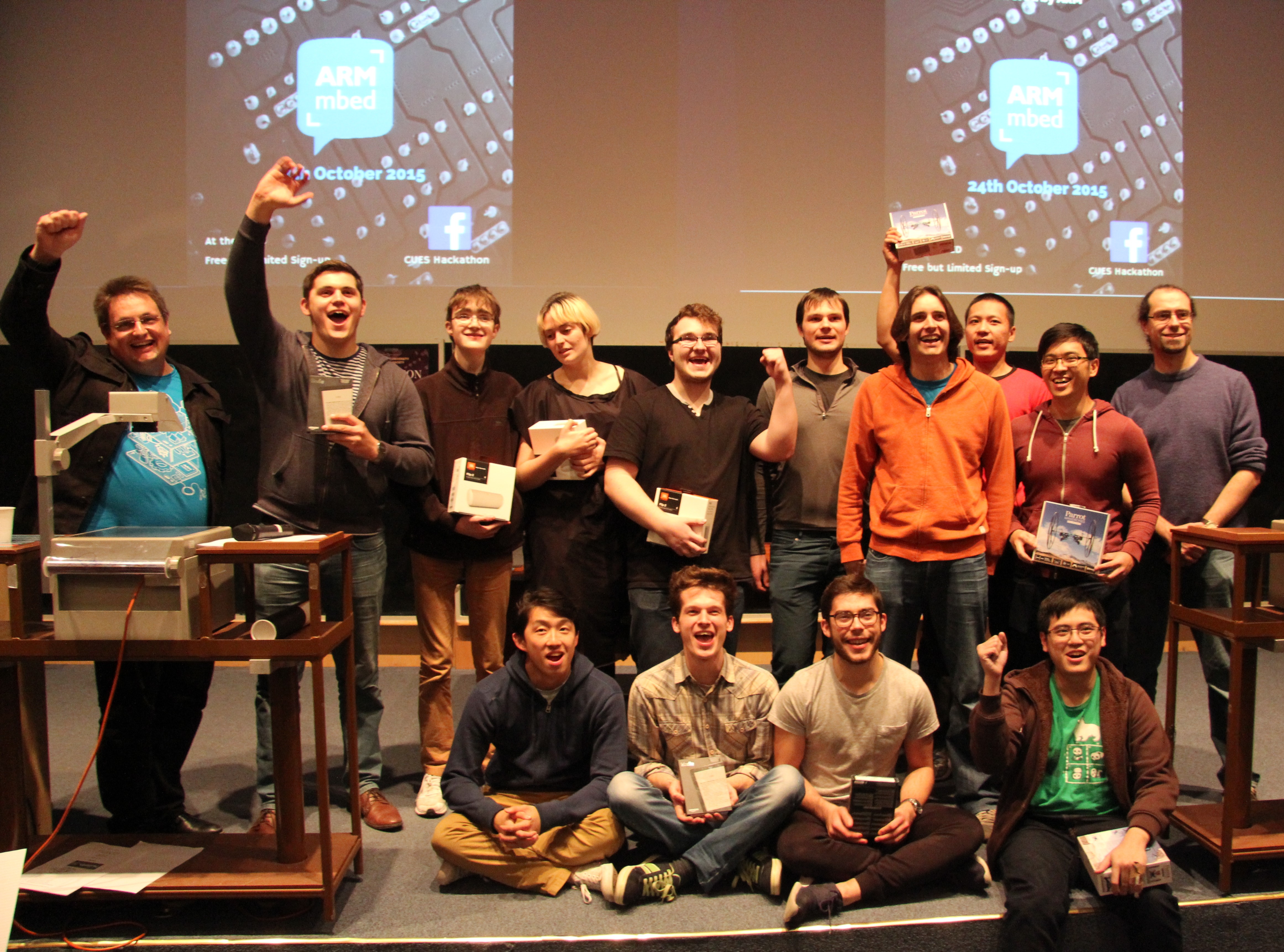CUES Hackathon Wrap-Up
Last weekend the mbed team was at the CUES Hackathon, the first ever ARM mbed wearable hackathon.
With 100 participants from the University of Cambridge, CUES Hackathon was a great success. Over the course of 24 hours, teams of student build amazing projects. The participants were given a BLE Nano development board from RedBearLab which contains a Nordic Semiconductor nRF51822 SoC that enables Bluetooth® Low Energy (BLE) communication with mobile phones and other BLE devices.
Of all the projects, here are few that stood out.
First Prize winner: Rowbot-Personalised Rowing Advice They developed a miniature wireless device that attaches near the rower’s wrist and streams real-time acceleration data to a mobile phone.
The device can both analyze data by itself and give personalized advice, or can be used by the team coach to track the performance of the team.
We were impressed with the completeness of their solution. It looked like a product that can be on the market within a week despite being made in the last 24 hours.
 Detailed description and their code can be found here.
Detailed description and their code can be found here.
Runner-Up: Internet Of Decks: Clothing containing LED Strips which beat in time to music
They developed clothing containing an embedded microcontroller and LED strips which beat in time to music. The LED Strips switch between many colours and flash in one of three patterns. A phone app is used to control when the device is on and which of the three patterns is used. Watch the video here.
We were impressed by the project’s commercial potential. The unique perspective of letting the DJ control your wearable can open up new markets.

Third Place: IoT Enabled Wearable SmartBin
They developed a Bluetooth Low Energy based Smart Bin, which measures the mass and volume of rubbish contained inside.
A companion smartphone app logs the data, renders beautiful graphs, and tweets passive-aggressively when the bin is full.
Although the team took a playful approach to their product and presentation, a connected rubbish bin can have serious social consequences in real life. If the bins in each home can report how full it is, city council can optimise its pick up routine to reduce fuel consumption and labour costs. If people can track how much rubbish they are producing and compare to their peers, they can be motivated to reduce their waste production.
A video demonstration of the mobile app can be found here.
More technical detail can be found here.

There are a lot more interesting projects at the event, if you are interested follow the links below:
- The Slouch-o-meter
- Bicycle Turn Indicator
- Smart doorbell
- Connected medicine bottle
- Wristband alarm
- Connected clothing (nearby friend indicator)
- Personal health assistant
- iUmbrella

For more pictures from the event, check out the Facebook event here.
You need to log in to post a discussion
Discussion topics
| Topic | Replies | Last post |
|---|---|---|
| Hackathon fun | 0 |
04 Nov 2015
by
|
| mbed, t-shirt ARMmbed T-Shirt | 0 |
03 Nov 2015
by
|

